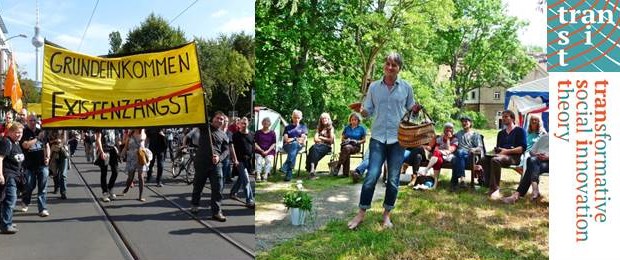Since 2018, a coalition of grassroots environmental groups and progressive politicians in the United States have brought into the public debate the idea of a Green New Deal. The plan is inspired not only by Roosevelt’s New Deal, but also by the subsequent wartime mobilization in response to a large-scale threat. The difference is that this time around the threat is not represented by the Axis powers, but rather by runaway climate change.
The Green New Deal moves beyond the market-based instruments that have so far dominated climate policy-making. It envisions massive public investment to overhaul energy and transport infrastructure, extensive state support for green industries, and large-scale efforts to help workers through a federal job guarantee.
The Green New Deal narrative put forward by Ocasio-Cortez considers the climate crisis a result of unbridled capitalism. And, as The Economist points out, it combines environmental and social programs to simultaneously tackle the twin problems of inequality and climate change.
The main issue with the current Green New Deal narrative is that it banks on the feasibility of decoupling economic growth from carbon emissions and material throughput. However, absolute decoupling is an illusion. In fact, economic growth and environmental impacts have been tightly coupled to date, with at best some relative decoupling, notably for carbon emissions, which have grown more slowly than GDP. This has been observed in a few advanced economies, but the role played by the outsourcing of emissions through international trade is likely considerable. Even under the best-case scenario, absolute decoupling of GDP growth from resource use and pollution is not possible on a global scale.
Furthermore, abundant and cheap energy has been historically a major driver of economic growth. Consequently, to sustain long-term economic growth it is necessary to increase the energy supply. However, the ‘energy return on energy investment’ (EROI) for renewables is low. Hence, an energy system entirely powered by renewables is unlikely to be compatible with a global economy at its current size—and much less with a global economy growing 2 or 3% per year.
Lastly, we should not be concerned only about climate change, as the scale of the ongoing ecological breakdown is much wider and it includes biodiversity loss, pollution, and unsustainable levels of material extraction. For instance, a scaling challenge for solar and wind comes from the need for raw materials, including rare earth minerals for electromagnets in wind turbines and lithium for batteries, that are limited in supply. In turn, this leads to other issues, such as environmental conflicts arising from struggles for the control of resources and local pollution where the mines are located.
It therefore seems clear that a socio-ecological transformation capable of moving us beyond a growth-based economy would require an even more ambitious political vision. Massive investments in green infrastructure would have to be the first step in a bolder programme, gradually leading to a just and sustainable social system which is not predicated on infinite economic growth. Is there any aspect of the Green New Deal discourse that raises such hope? Maybe.
In the text of the Green New Deal Resolution presented in the United States House of Representatives there is a mention of the need for “providing all people of the United States with high-quality health care; affordable, safe, and adequate housing; economic security; and access to clean water, clean air, healthy and affordable food, and nature.” This amounts to a considerable expansion of the welfare state. As explained by Ian Gough in his book Heat, Greed and Human Need, the welfare state transfers the allocation of some goods and services from the market to political determination, often in the form of ‘social rights of citizenship'. The welfare state ensures the provisioning of decommodified services by the government for all households, e.g. education, housing, and healthcare.
Hence, if the provision of basic services is decommodified, then the rationale for pursuing growth on behalf of working people loses its validity. This may represent a breach in the political consensus around the need of pursuing economic growth at all costs. It will also make all the difference in our struggle to ensure a dignified life for all citizens while steering away from ‘hothouse Earth.’
But how do we get there? Roosevelt’s New Deal would not have happened without massive pressure from social movements. Thus, the mass mobilization led by Extinction Rebellion and the youth climate strikes is essential to pressure politicians into declaring a climate emergency (as it has already happened in the UK) and rolling out a Green New Deal. But it’s equally essential that we dethrone GDP growth as the utmost political priority and start building a post-growth alternative for human prosperity and ecological sustainability.

A Study on Transformative Social Innovation There are numerous grassroots movements and initiatives worldwide with the ambition to contribute to transformative change towards more sustainable, resilient and just societies. Many of them have a specific vision on the economy and relate to alternative visions of a ‘New Economy’. The research project TRANSIT highlights four prominent strands of ne...
How to sell degrowth is one of the questions of our research and communication project Postwachstumspioniere at the Institute for Ecological Economy Research. In the paper “Successful non-growing companies“, Andrea Liesen, Christian Dietsche and myself are discussing motives and strategies that seem to apply to a variety of non-growing companies. We found that small and medium-sized [...]

As a manager for “Bios funeral directors“, Dr. phil. Haimo Schulz Meinen, ex-journalist, teacher and writer, suggests the next steps to relieve the planet from the human objective of growth. In fact, “Bios Funeral” appears to be a very profitable start up and worthy of investment. After a short moment of surprise we finally published [...]